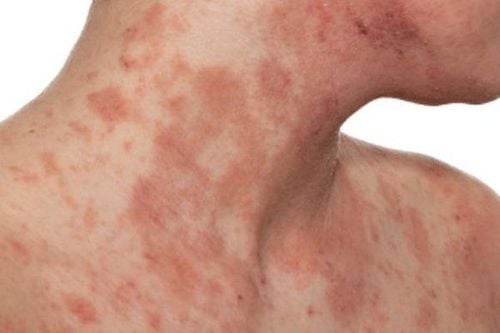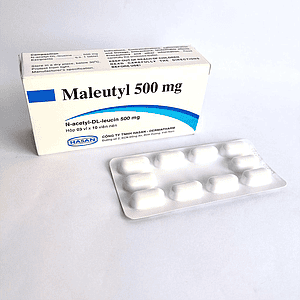This is an automatically translated article.
It seems scary how much damage eating a peanut allergy can cause, but you can reduce your risk of a serious reaction if you learn to spot symptoms and avoid eating peanuts. The following article tells you more about peanut allergy is dangerous or not?
1. What is a peanut allergy?
Peanuts, also known as peanuts or monkey nuts, are a common cause of food allergies. An adverse reaction to peanuts is a true food allergy that involves an overreaction of the immune system and the production of IgE antibodies.
Peanut allergy is one of the most common causes of severe allergic reactions. For some people with a peanut allergy, even small amounts of peanuts can cause a severe, possibly life-threatening reaction (anaphylaxis).
Peanut allergy is increasing in children. Even if you or your child only had a mild allergic reaction to peanuts, it's important to talk to your doctor. There is still a risk of a more serious reaction in the future.

Dị ứng đậu phộng có thể gây sốc phản vệ
2. Causes of peanut allergy
Peanut allergy occurs when your immune system incorrectly identifies the proteins in peanuts as something harmful. Direct or indirect exposure to peanuts causes your immune system to release symptoms-causing chemicals into your bloodstream. Exposure to peanuts can occur in a variety of ways:
Direct contact: the most common cause of peanut allergy is eating peanuts or foods containing peanuts. There are many cases where direct skin contact with peanuts can cause an allergic reaction. Indirect exposure: this is the unintended introduction of peanuts into a product. Generally, it is the result of food coming into contact with peanuts during processing or handling. Inhalation: An allergic reaction can occur if you breathe in dust or aerosols containing peanuts, from a source such as peanut powder or peanut oil for cooking.
3. Risk factors occur
It is not clear why some people have allergies while others do not. However, people with certain risk factors are more likely to develop a peanut allergy. Risk factors for peanut allergy include:
Age: Food allergies are most common in children, especially toddlers and infants. As you get older, your digestive system matures and your body is less likely to react to allergenic foods. Ever had a peanut allergy: Some children with a peanut allergy will outgrow it. However, even if you seem to have a peanut allergy, it is still possible for it to recur. Other allergies: If you are already allergic to one food, you may be more at risk of being allergic to another. Likewise, have another type of allergy. Family members with allergies: You're more likely to develop a peanut allergy if other allergies, especially other food allergies, are common in your family. Atopic dermatitis: Some people with atopic dermatitis (eczema) also have food allergies.

Vi da dị ứng là một yếu tố gây dị ứng đậu phộng
4. Peanut allergy symptoms
Symptoms of a peanut allergy can vary from a mild to very severe, life-threatening reaction. The potential severity of a peanut allergy requires the care and vigilance of those affected by the condition and those around them. The widespread use of processed peanut products in food means that the issue of peanut allergy also has major implications for the food processing industry responsible for ensuring that its products themselves are labeled to alert buyers to the presence of potentially allergenic products.
Allergic reactions to peanuts usually occur within minutes of exposure. Peanut allergy signs and symptoms may include:
Skin reactions, such as rash, redness, or swelling Itching or tingling in or around the mouth and throat Digestive problems chemicals, such as diarrhea, stomach cramps, nausea or vomiting Tight throat Difficulty breathing or wheezing Runny nose
5. Complications
Complications of peanut allergy can include anaphylaxis. Children and adults with severe peanut allergies are especially at risk for this life-threatening reaction.
Anaphylaxis: a life-threatening reaction. Peanut allergy is the most common cause of food-borne anaphylaxis. Signs and symptoms of anaphylaxis may include:
Constriction of the airways Swelling of the throat causing difficulty breathing Severe drop in blood pressure (shock) Rapid pulse Dizziness, lightheadedness or loss of consciousness

Sau khi ăn đậu phộng nhận thấy dấu hiệu chóng mặt, người bệnh nên được đưa đến bệnh viện
6. When to seek medical help?
When you have any signs or symptoms of peanut allergy, immediately contact the nearest medical staff or go to the nearest medical facility for advice and examination.
Seek emergency treatment if you have a severe reaction to peanuts, especially if you have any signs or symptoms of anaphylaxis.
Please dial HOTLINE for more information or register for an appointment HERE. Download MyVinmec app to make appointments faster and to manage your bookings easily.













